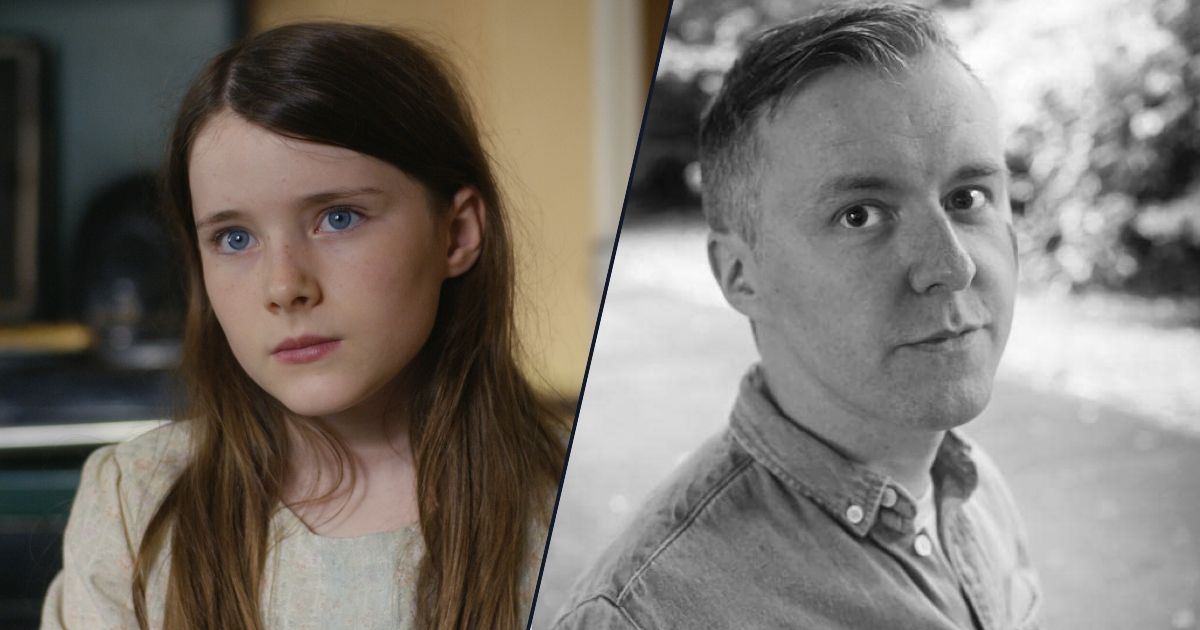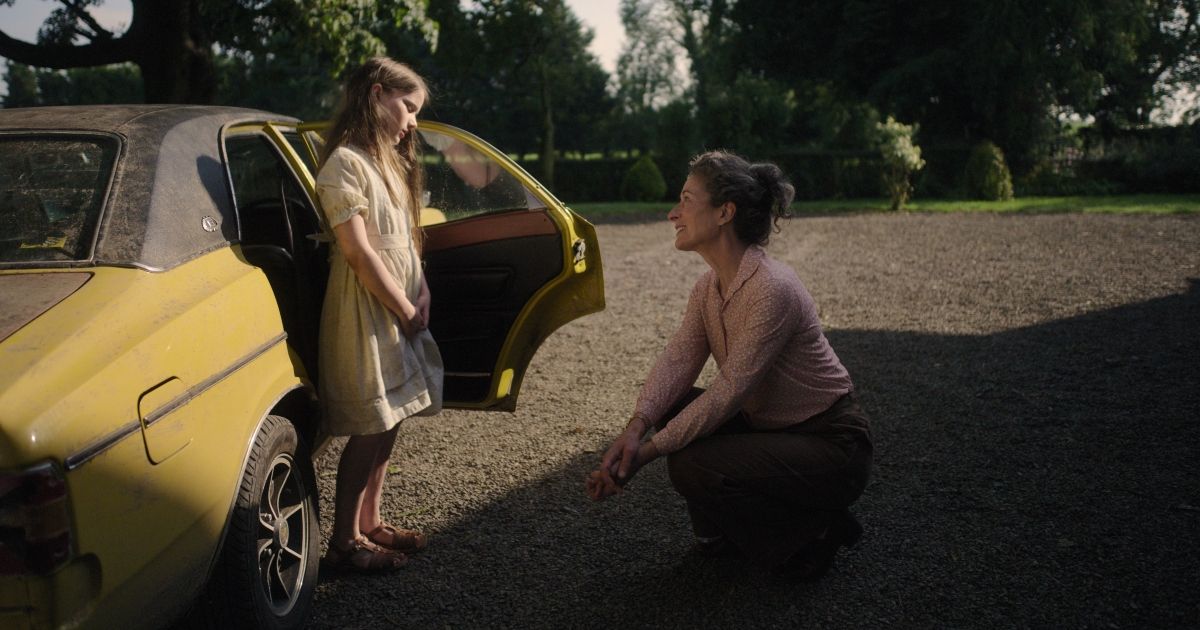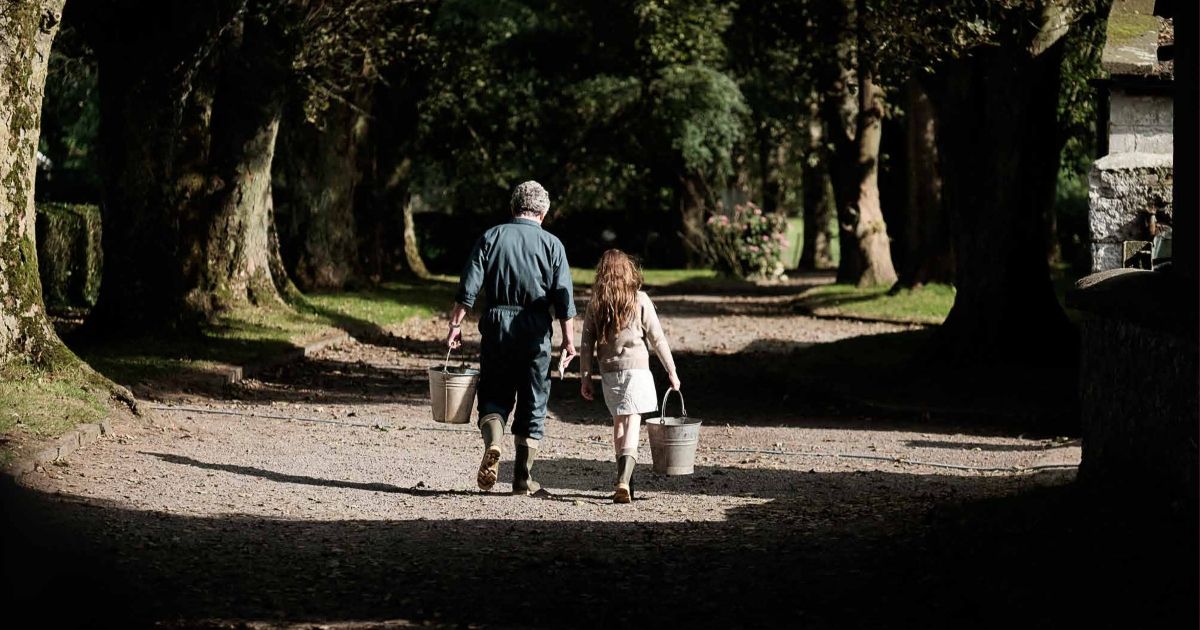Parents will sometimes tell their children, "This isn't a democracy. This is a dictatorship." That's essentially true — there's a Mussolinian quality to parenting, and children do not have the same rights and freedom as adults. Of course, this isn't necessarily a bad thing. It kind of has to be that way, even if it is a bit of a sad thought. Colm Bairéad's highly acclaimed film The Quiet Girl depicts this in a perceptive, haunting, and empathetic fashion, detailing the complete powerlessness of childhood in delicate fashion.
The film follows Cáit, a nine-year-old girl in Ireland circa 1981, as she is forced out of her family home in order to live with her distant family. Many films detail kids who dream of escaping to a much better environment, or who are sent from an idyllic home and into a nightmarish situation (Harry Potter, Matilda, Cinderella, and so on). In The Quiet Girl, though, the child is sent from a seemingly bad situation (a crowded house stricken with poverty and indifferent, cruel parents) and into a great one almost immediately. It doesn't spend time manipulating the audience and is a far cry from the emotional trickery of many movies about children.
Instead, The Quiet Girl lives up to its title and is a small, patient, and, yes, quiet meditation on childhood, loss, love, and control. As a result, it manages to be more quietly heartbreaking and heartwarming than many more plot-driven, Hollywood-style productions. This might explain its recent nomination for Best International Feature Film at the 95th Academy Awards (and at the upcoming BAFTAs and Satellite Awards). Bairéad spoke with MovieWeb about why and how he chose to make the film, and how it fits into the landscape of Irish cinema today.
Colm Bairéad on Parenting and Childhood
Cáit (a gentle Catherine Clinch) is a sweet and shy young girl with few lines of dialogue, and the film is viewed through her perspective. From low angles and a somewhat childlike, ethereal ambiance, to the absence of adult conversations and details that Cáit wouldn't be privy to, The Quiet Girl epitomizes childhood — the beauty, the melancholy, the mystery, the fear. Cáit's new maternal and paternal figures, Eibhlín and Seán Kinsella (the stunningly effective Carrie Crowley and Andrew Bennett, respectively), are a kind respite from the chaos, confusion, and hunger of her home life. They're caring, intuitive, and committed, and they might just offer the child a new way to see the world. In a way, they may represent the kind of parents that The Quiet Girl's director and producer want to be.
"I guess I'd become a father not too long before I first read Foster, which is the story that our film is based on, and which our film is a pretty faithful adaptation of," explained Bairéad. "So I definitely had a response to the central character at the heart of the story, which is this young child who's yearning for care, and affection, and love, and all of these things that I was learning were so essential to the sort of formation of a person. We had this young child of our own when my wife was pregnant with our second child at the time, as well, and she's actually the producer on the film. So we both had this sort of response to the character as new parents, that was certainly a factor."
That wasn't the only factor, however. "I was familiar with this practice of children being kind of farmed away for extended periods from Irish families, that was a real thing in Irish society in years gone past," continued Bairéad. "That wasn't something that I experienced personally, but I have relatives, one in particular. Her mother passed away, and then she was sent to live with a cousin, so she didn't actually grow up with her own family, and never kind of knew her father properly, and in a sense, considered her aunt and her uncle her parents." Bairéad elaborated:
That struck me, as there's a sadness to that, there's sort of a tragedy to that notion. So I guess I was connecting with it on a personal level in terms of the child at the center, and then in a broader sense of the manner in which children were treated in our society in times past. They weren't valued in a sense, to the same degree.
A Child's First-Person Perspective in The Quiet Girl
Bairéad gives great agency to this 'undervalued' perspective with The Quiet Girl, ensuring that the film was more about Cáit than melodrama and plot. "I'm not sure that the film would work if you tackled it any other way," said Bairéad, "because the plot of the film isn't the thing. It's not a film about huge narrative developments or anything like that." No, The Quiet Girl doesn't thrive on the machinations of the plot, but rather the visceral experience of childhood and these three people, bonded by circumstance. Bairéad continued:
My belief was always that, if we can truly place the audience in the shoes of this young girl, that will be the primary sort of engine of the film, that the question of point of view is so fundamental to the success of the film. That the narrative tension will be derived from the moment to moment experience of the audience through this girl. You're hoping that an audience will remember what it feels like to be a child, to remember what it feels like to be in an unfamiliar place, or to be confused, or to not have any agency over what's happening to you.
"There are all sorts of positive things, too," said Bairéad, "like to feel joy and feel safety and all of those things. That's the thing that I knew from the very beginning, that was the only kind of entry point into the story. It just seemed untenable to me, the notion of trying to adopt a sort of third-person perspective, or sort of omniscient narrators. We were emulating what Claire Keegan had created in Foster, which she's written in the first-person. So everything that you experience through that piece of work is limited to what the girl experiences herself. And I'm a sucker for point of view in cinema."
The Quiet Girl Continues the Green Wave of Irish Movies
Bairéad was actually a documentary filmmaker before writing and directing The Quiet Girl, a career that is almost conducive to this film's first-person perspective. "I do feel like working in documentary, particularly, I would have made a lot of observational documentaries over the years, following certain people and just documenting their lives," said Bairéad. "You're really not inserting yourself into the process. You're trying to become invisible, and you're just becoming this sort of observer."
"I was always very concerned in my documentary work with this idea of trying to capture the essence of a place," added Bairéad, which makes a lot of sense in reference to The Quiet Girl, a film which really captures the setting of rural Ireland. "Environment plays a huge role in how we're shaped as human beings." That Irish setting and culture has become somewhat of a talking point in the past year, with several prominent Irish films garnering great acclaim. Great Irish movies like The Banshees of Inisherin, Aftersun, An Irish Goodbye, and The Quiet Girl are all being represented at the 95th Academy Awards, indicating a recent boom for Irish film.
"I think maybe these things kind of come in cycles," hypothesized Bairéad. "There's a certain amount of just serendipity that may be involved, and that certain projects just happen to prevail in the same year. But having said that, there is definitely something noteworthy about the presence of an Irish-language film in the mix, in this particular instance. The Irish language has been sort of underrepresented in our national cinema for so long, and it's only because of increased investments in the last five years that you've seen these Irish-language films emerging." Bairéad elaborated:
There's been this little green wave of Irish-language cinema that's been building over the last few years, and that's absolutely down to the fact that Screen Ireland, TG4 (the Irish-language broadcaster), and the B.A.I. (the Broadcasting Authority of Ireland) all came together and said, 'Right, we're going to fund Irish-language cinema, we're going to give a voice to this language in our national cinema.' So that's absolutely something that changed, and this is very clearly the result of that belief and that investment.
That belief and investment have resulted in a highly-acclaimed film and a prominent Oscar nomination. Irish citizens, fans of Irish cinema, and cinephiles in general will be watching the Academy Awards to see if this quiet, gorgeous little film can win in a big way. The Quiet Girl is a production of Inscéal, Fís Éireann / Screen Ireland, TG4, and the Broadcasting Authority of Ireland, and will be in theaters on February 24.



